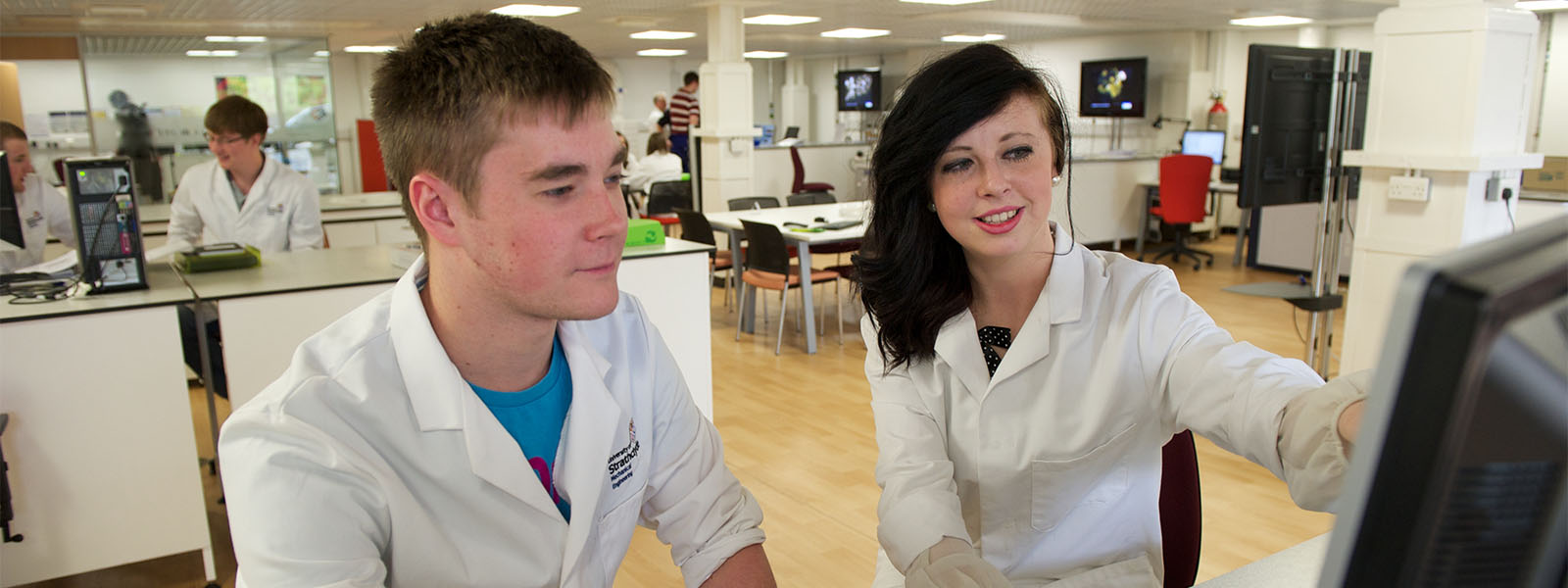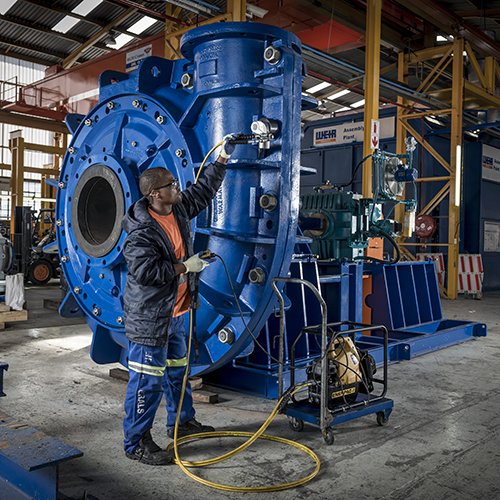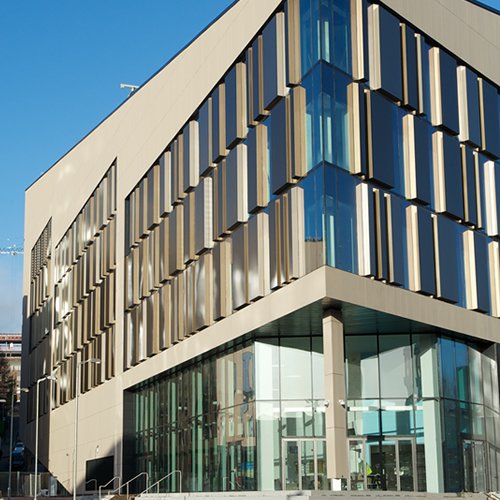
Faculty of EngineeringPhD @ Work programme
What is a PhD@Work?
A PhD is the highest postgraduate qualification offered by universities. PhDs are research-based degrees. In the PhD@Work programme, the candidate prepares an original research question/proposal in collaboration with their employer and an academic supervisor at Strathclyde, and explores the topic in depth.
The PhD@Work programme is for those who are looking to build on what they studied during their undergraduate and/or master's degrees, who are currently employed and wish to carry out research on a particular topic/challenge relating to their field of activity and expertise. Candidates will work with an academic supervisor at Strathclyde and an industry supervisor, ultimately making a contribution to knowledge and expanding the boundaries of a particular field of research.
Learn more about the programme
Looking to know more about the programme, or interested in discussing the study options available? Then get in touch with us using the link below.

How does the PhD@Work programme work?
Candidates will spend a significant amount of their working time on a PhD project, co-created with their employer and academics at Strathclyde, ideally focussed on challenges relevant to them and their company. There is flexibility, and candidates undertaking a PhD@Work typically would do so on a part-time basis, allowing the research to progress in parallel and to be blended with the business needs of the employer.
Research projects are usually carried out at the candidate’s workplace. Where appropriate, candidates may come to Strathclyde to use the research facilities, and to interact with supervisors and other colleagues. There may also be the option to undertake formal training in research-related skills and practices as part of Strathclyde’s Researcher Development Programme. Prior experience and employer training and development programmes will also be considered when preparing an individual training portfolio to accompany the PhD research programme.
What are the benefits to the candidate?
In addition to carrying out research and producing a thesis for examination, a PhD has traditionally been viewed as training and development towards a career in academia. However, the modern PhD is a very flexible qualification, focused on the development of valuable research and leadership skills, career development and industry-specific training designed to help the candidate communicate and apply their research beyond a university setting. Candidates will also benefit from a "cohort experience", joining other PhD researchers from their own companies, other companies and full-time students - presenting valuable networking, peer learning and support opportunities. More than 70% of PhD graduates in the UK progress to non-academic careers, and research indicates that PhD graduates have higher earning potential, particularly in engineering.
What are the benefits to the company?
The company will be able to access the valuable knowledge created during the programme, potentially exploit this for commercial gain, and also benefit from publicity and marketing opportunities associated with conducting world-leading research. This will create new opportunities for growth and innovation through the collaboration between Strathclyde and the partnering company. Employers will also have the opportunity to engage with world-leading researchers and innovators at Strathclyde who work within their research area(s), enabling knowledge transfer and networking within the Faculty of Engineering and further afield as they engage with Strathclyde’s extensive networks.
Costs and timelines
The PhD@Work programme has flexible timeline options and fee structures to suit different individual and organisational needs. Candidates would typically join the programme on a part-time basis, spending 50% of their time over six years in completing the PhD. It may be possible to reduce this duration in some cases, and candidates can exercise an option to register initially for a two-year Master's by Research (MPhil) degree, with an option to transfer to a PhD degree being available subject to satisfactory initial progress. Prior learning that may contribute towards a PhD may also be considered in some cases. Please contact us to discuss your particular situation and requirements.

Why Strathclyde
The Faculty of Engineering at Strathclyde is a leading international centre for research, knowledge exchange and teaching, based in Glasgow. We address global challenges facing society by undertaking collaborative research to generate new knowledge, understanding and solutions. The Faculty strives to deliver impact at scale and at pace, in keeping with the University's founding ethos as a "place of useful learning". This is achieved through Strathclyde's distinctive model of partnership working to deliver impact for business, industry, society and Government.

Equality, Diversity & Inclusion
The University of Strathclyde is committed to creating collaborative, inclusive and supportive working environments which enable high-quality, innovative and industry-focused research. All of our Engineering Departments hold Athena SWAN awards (1 Gold award, 7 Bronze awards) in recognition of our commitment to supporting equality and inclusiveness. In the PhD@Work programme, we will focus on ensuring diversity across the programme and will take a proactive approach to ensure equal access to the opportunity for underrepresented groups, those with varying backgrounds and working patterns, career stages, and those with protected characteristics.

Case Studies
To gain an idea of what an industry-focused PhD looks like, please refer to a selection of recent case studies that showcase the breadth and depth of our postgraduate research projects, highlighting the impact our research is making with our partners.
How to apply
If you are interested in applying for a PhD@work, select the apply now button and select the department you are interested in working with. Please feel free to make contact with individual academics (through browsing the various Strathclyde websites) to discuss potential opportunities directly.
For more information please see our PhD@Work FAQs.
Download the PhD@Work Programme Flyer 2023.